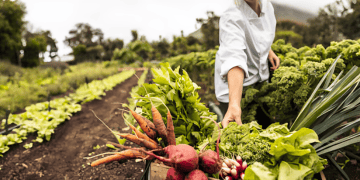The National Agricultural Credit Commission, overseen by Colombia’s Ministry of Agriculture and Rural Development, has approved a comprehensive agricultural financing and risk policy for 2025. The initiative outlines a budget ranging from 38 to 43 billion pesos, aligning with the government’s declared “Year of Peasant, Family, Ethnic, and Community Agriculture.”
The policy focuses on five critical areas: agrarian reform, sustainable agri-food systems, risk management, support for producer associations, and financial inclusion. By prioritizing small and medium-scale producers, the program seeks to foster rural development and reinforce local economies.
According to Minister of Agriculture and Rural Development Martha Carvajalino, the initiative includes specific measures such as incentivizing technical assistance, promoting savings, and bolstering producer organizations. These measures are designed to enhance agricultural production and ensure the sector’s resilience to economic and environmental challenges.
The Indicative Credit Plan, part of this framework, allocates between 5.3 and 5.7 billion pesos to integrate small producers into the financial system. Additionally, 2 to 2.5 billion pesos will be designated to improve the financial inclusion of rural women. Around 11 billion pesos is earmarked for food production, while approximately 2 billion pesos will address activities related to climate change mitigation and adaptation.
The Annual Incentive Plan further targets vulnerable groups, including low-income small producers, rural women, youth, ethnic communities, victims of armed conflict, and reintegrated individuals. These groups will benefit from Special Credit Lines (LEC) tailored to their needs.
Another key component of the 2025 policy is the Annual Risk Management Plan, which has set aside 221 billion pesos for agricultural risk management. This will include the restructuring of the Comprehensive Incentive for Agricultural Risk Management (IIGRA) into four key areas: technical support for risk management, promotion of savings, agricultural risk transfer, and credit inclusion for at-risk communities.
Colombia’s agricultural sector plays a significant role in its economy, with notable exports including Arabica coffee, flowers, bananas, palm oil, and avocados. The country is the third-largest global producer and exporter of coffee and remains a leading exporter of Arabica beans.
With this new financing policy, Colombia aims to strengthen its agricultural foundations, support rural populations, and ensure sustainable growth in its critical export sectors.
Stay on top of supply chain news with The Supply Chain Report. Enhance your international trade knowledge with free tools from ADAMftd.com.
#NationalAgriculturalCreditCommission #ColombiaAgriculture2025 #AgriculturalFinancing #PeasantAgriculture #SustainableAgriFoodSystems #RuralDevelopment #FinancialInclusion #ProducerAssociations #AgrarianReform #WomenInAgriculture #ClimateResilience #RuralEconomies #FoodProduction #SmallScaleProducers #RiskManagementPlan #LECInitiative #AgriculturalExports #ColombianCoffee #ArabicaBeans #AgriculturalGrowth















